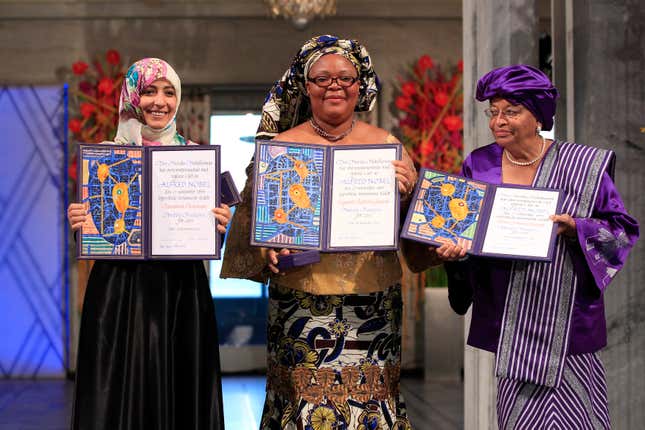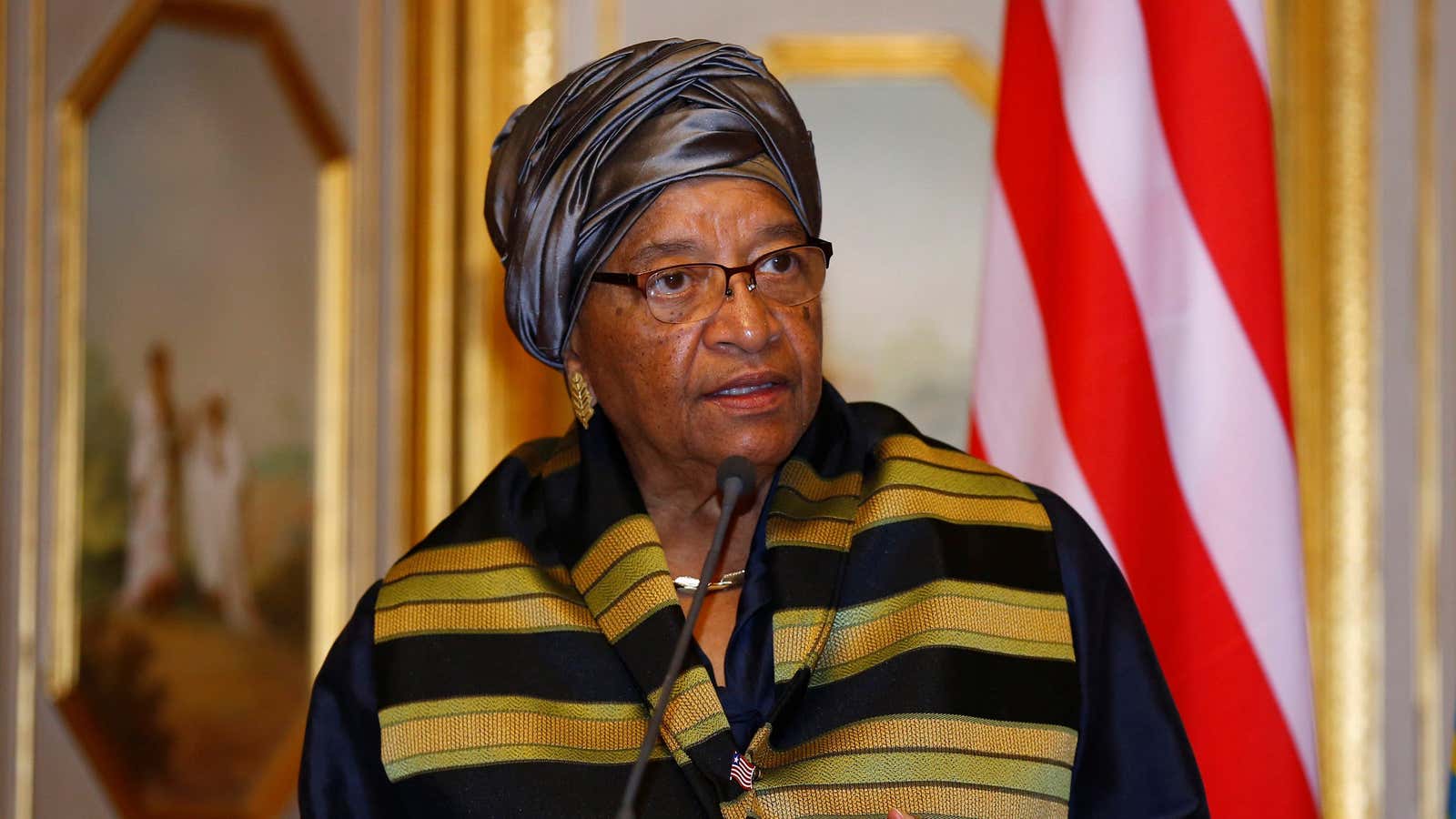Monrovia, Liberia
With fewer than ten days until Liberians go to the polls on Oct. 10, president Ellen Johnson Sirleaf is preparing to step down as the first female president elected in Africa. While her actions to restore peace to the fragile nation over the past 12 years have been lauded by many across the globe—including the Nobel Peace Prize committee—she also has her critics, especially when it comes to female empowerment.
When Sirleaf came to power in 2005, rape, murder and mutilation had been endemic across the country. The new president had the formidable task of upholding peace in Liberia, two years after the end of a 14-year civil war where more than 250,000 people were killed and another million displaced.
While Sirleaf herself admitted she could have done more in her tenure, at her final address to the United Nations General Assembly last month she outlined her government’s positive impacts. Under her rule the government had “reshaped” security services, she said, adding that “Liberia has remained stable, peaceful and secured”.
In the same speech she said the economy had transformed from a negative growth rate to more than 8.7% in 2013, until Ebola struck the nation, and the plummeting price of export mainstays iron ore and rubber brought a downturn. However, Liberia is still plagued by poverty. In the 2016 United Nations Human Development Index (pdf), Liberia ranks 177th out of 188 countries.
During the war, it was estimated around 70% of women were sexually assaulted. When Sirleaf came to power, one of her first priorities was bringing in new legislation to widen the definition of rape. However, actual prosecutions have remained low. The UN found only 2% of reported rape, sexual and gender-based violence cases in 2015 resulted in a court conviction.
But where Sirleaf’s fans and critics clash most often is over her dedication to female empowerment. Sirleaf told the United Nations under her government women had been given a voice and the right to be heard. In 2011, along with Leymah Gbowee and Tawakkul Karmān, she won the Nobel Prize for Peace for her efforts to further women’s rights.

Ruth Caesar, co-ordinator of the Liberian Women Political Forum, says Sirleaf “broke the glass ceiling”, inspiring other women to enter politics, and this year, 16% of house of representatives candidates are female, the highest proportion in history.
But whether those women are elected is another matter, she said.
According to UN Women data, Liberia ranks just 146th of 190 countries in terms of women in the legislature—women account for 11.66%. The executive branch consists of 21% women and women account for under 6% of leadership positions in local government, from the village to the county level. The data shows that in this year’s election, just ten of a total of 58 candidates in Sirleaf’s Unity Party are women.
Feminist activist Korto Reeves Williams, a founding member of the Liberia Feminist Forum, believes low levels of female participation in leadership roles shows Sirleaf fell short when it came to empowering women.
While Sirleaf’s presidency had opened up a space for women and made them more visible in terms of leadership, Reeves WIlliams said the emphasis should be on having people in government to change the system that historically oppressed women in politics.
“Women entering a patriarchal system without having changed it is not much of a success, as opposed to joining a new kind of system that acknowledges that women and men are equal.”
The mere existence of Liberia’s one female presidential candidate in 2017 has ruffled feathers through the nation.
“When I first entered the race I got a lot of talk that ‘we don’t want another female president, we don’t want another woman’,” presidential candidate MacDella Cooper said.
She admires Sirleaf, but doesn’t go so far as to say she is the reason for her candidacy.
“I give her absolute credit for sustaining peace in our country especially after our civil conflict. I was here, I lived it, my father was killed in the war,” she said, adding that Sirleaf made it possible for her to come home after living in the USA as a refugee.
To Cooper, Sirleaf could have done more but, “she served her purpose” proving a woman’s power and providing peace. Because of Sirleaf, women and girls tell Cooper their eyes are open and heads raised.
“She started a process. Rome wasn’t built in a day; Liberia came from nowhere.”
